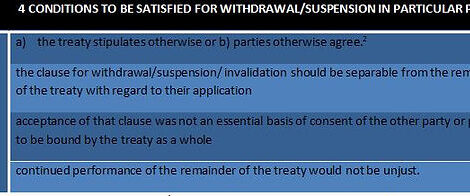By Tirthankar Mitra
Even after praise for the BJP functionaries in West Bengal from Prime Minister Narendra Modi together with the party’s national president JP Nadda choosing this state as his first port of call at the beginning of his second term, prospects of the saffron camp in the coming rural polls appear to be dim. Lack of focus and complacency surfaced at a two day long organisational meeting of BJP at Durgapur which turned into a bitter pill of disappointment to Mangal Pandey and Sunil Bansal, the central observers of the party.
Just as the saffron camp in the state was cock-a-hoop at the sight of Trinamool Congress leaders facing irate crowds complaining if unfinished projects or unsanctioned schemes in many parts of the state, the Durgapur meeting opened a Pandora’s box for the saffron camp. Leaders deliberating in the stock taking meeting spilled the beans admitting that the party lacks the organisational muscle to take on the Trinamool in the panchayat polls. In April/May this year.
Facts facing the leaders augured ill for the saffron camp in the coming elections. The ranks of the grassroot workers are thin.
Most of the booth committees are yet to be set up. It would be a tall order hoping for an outpouring of the anti-incumbency factor against the Trinamool dispensation would be ensured by the presence of central armed police forces and the public resentment towards the Trinamool state government following stinging observations of the courts in the alleged corruption cases against many TMC leaders was one of the findings of this meeting.
It seems the state BJP leadership was resting on its laurels it had won in 2019 Lok Sabha polls and 2021 state Assembly elections. After having reduced the Congress and Left presence in the state Assembly to a zero in 2021 elections, the saffron camp finds itself in an unenviable position just when it seemed to pose a challenge to the Trinamool Congress in the coming rural polls.
At a time when a slugfest between TMC and BJP appeared to be on the cards, the rural polls battle now threatens to turn out to be an one-sided affair with the principal challenger BJP set to be knocked out. Though its poll performance since 2018 rural polls can be stated to be on an ascending curve, it seemed to be on the verge of a nosedive in the coming rural polls. The review show that the state BJP is not organisationally prepared in 60 per cent of the booths and in some South Bengal districts, even finding proper candidates will be a problem.. The observers, specially Sunil Bansal who is considered as an election wizard of BJP has sent a depressing report to the central leadership about the preparedness of the BJP against the ruling Trinamool Congress.
The 2018 rural polls results were .indication that subsequent elections will be a bipolar with BJP being elected at the gram panchayat level in every district of the state. Relegating the CPI-M to the position of a poor third, state BJP emerged with 19,394 seats in the gram panchayat level. Out of the total of more than 56,000 seats. But in the coming pols, the seats for the BJP are sure to go down further.
But it was no cakewalk for the saffron outfit in a violence singed election in which nearly 20 persons were killed. Having first made its presence felt in 1992 panchayat polls following the Babri Mosque demolition, the saffron outfit’s poll results varied reaching its highest level in 2018 panchayat elections.
Looking back, one can say sans much political punditry that 2018 panchayat polls results were a pointer to the way the wind was flowing into the saffron camp’s sails for next year’s Lok Sabha election. The BJP ended up with 18 Lok Sabha seats but it’s political fortunes seemed to be on a downhill trend thereafter as Trinamool speedily took corrective actions and these gave dividends to the TMC in 2021 assembly elections and thereafter.
That the state BJP is in a bind was affirmed by its state chief Sukanta Majumdar’s contention that one bright spot for BJP’s rural polls prospects was a strong possibility of an undeclared alliance with the supporters of the different Left Front constituents. Having been voiced by Majumdar such a game plan could not be officially approved by senior state leaders or the observers from the national Capital though it inadvertently underscored organisational weakness and need a wider outreach.
Though Majumdar made it clear that BJP would not openly support a Left candidate, it is well known that the party leadership have little control on grassroots activists. It is a ground reality that ideology is at a discount when the rank and file have to protect their political existence. And security.
The state BJP leadership is peopled by many a one-time Trinamool big wig. Vocal in his disappointment at grassroots organisation not developing despite the party emerging as the principal Opposition party in the state Assembly and winning 18 parliamentary constituencies in 2019, one of these turncoats said at the meeting that a marked reluctance to hit the ground running was one of the principal impediments to the growth of its rank and file.
The leader from Midnapur (east) who has given the ruling dispensation a run for its money off and on rued the absence of a leader like Mamata Banerjee who hit the streets on issues big or small. His contention cannot be disputed as not too many BJP leaders were seen heading an agitation though there has been allegations galore of corruption cases.
Lack of outreach among the minority community was identified to be another stumbling block in the path of percolation of BJP influence. Incidentally widespread acceptance among the minority community is one of the keys to TMC’s electoral success over the past decade.
Intra-party squabbles came out in the open in the organisational meeting. A leader was snubbed and pointed that it was not a meeting about district issues after he pointed out that many a district chiefs are out of touch with the rank and file and run the units with their coterie.
Oneupmanship came to the fore at the Durgapur meeting. Though regional meetings have been prescribed to be held in greater frequency and number for adding to organisational muscle, such events have been few and far between.
It was Biman Ghosh, a MLA from Hooghly and a leader in a lower hierarchy than former state chief Dilip Ghosh and the present incumbent Sukanta Majumdar together with the leader of the Opposition, Suvendu Adhikari organised the maximum number of these meetings. Keeping in mind the rural polls, the central leadership of the party had chalked out the plan of holding these meetings.
A subsequent headcount revealed that Majumdar had organised more of these meetings than Ghosh. The claim was not disputed even by Ghosh who admitted that the number of meetings he had organised was less than the legislator from Hooghly.
But this numbers game boils down to the senior state leaders giving a go by to a crucial guideline of the central leadership resulting in organisational weakness. Such shortcoming would cost the saffron camp dear in the coming rural polls.
Rejuvenation of political fortunes of the party in the panchayat polls appeared to be the last thing in the minds of many a delegate of the Durgapur meeting. It was manifest on the final day of the meeting when these BJP leaders leaving central observers Bansal and Pandey clueless made a beeline for the Durgapur railway station even as the meeting continued.
The observers were enlightened by the state chief Majumdar that the haste was to board the different trains home as the meeting had stretched beyond the time it was scheduled to end. These leaders certainly boarded the trains but they have missed their bus.
An opportune moment to script a winning strategy for the panchayat elections has been miffed by the state BJP leadership. It is a pity that what in football parlance is a sitter has been missed at a time when the Trinamool government is struggling with its back to the wall against a slew of corruption charges ranging from cash for teaching jobs and some ruling party functionaries living in pucca houses getting the benefits of Prime Minister Awas Yojana scheme meant to give living space for the homeless. (IPA Service)



